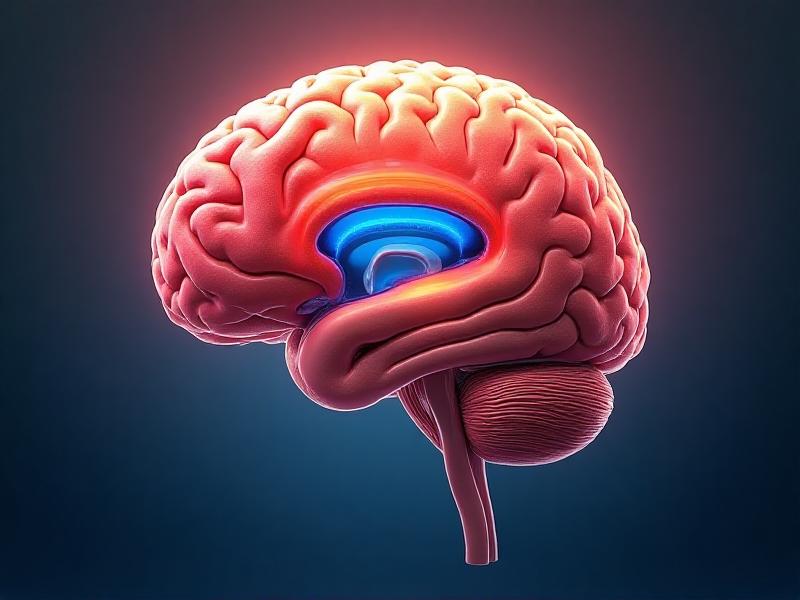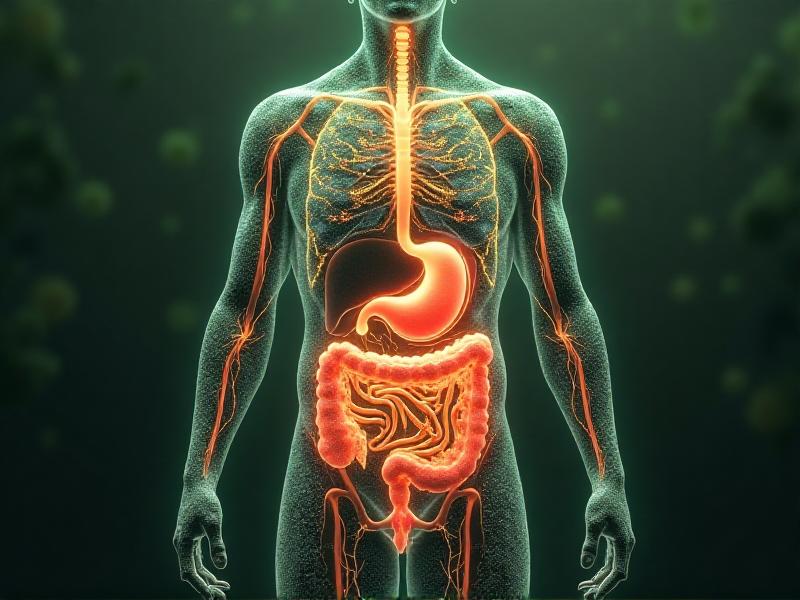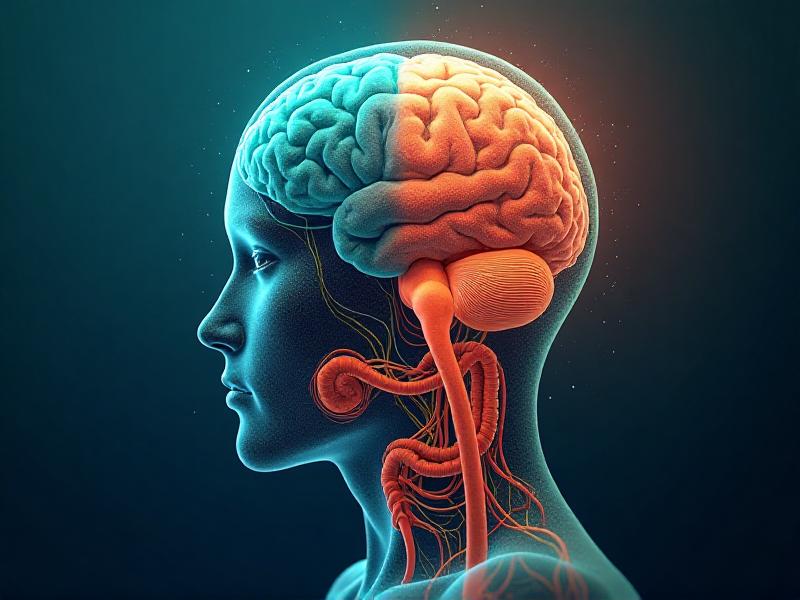The Biological Basis of Emotional Well-being
The Biological Basis of Emotional Well-being
1. The Brain's Role in Emotional Regulation
The human brain is a complex organ that plays a pivotal role in regulating emotions. At the core of emotional well-being is the limbic system, which includes structures like the amygdala, hippocampus, and hypothalamus. These regions work together to process emotions, form memories, and trigger physiological responses. For instance, the amygdala is often referred to as the brain's "alarm system," as it helps detect threats and initiate fear responses. Meanwhile, the hippocampus is crucial for contextualizing emotions, allowing us to differentiate between past and present experiences.
Neurotransmitters such as serotonin, dopamine, and norepinephrine also play a significant role in emotional regulation. Serotonin, often dubbed the "feel-good" chemical, helps stabilize mood and promote feelings of happiness. Dopamine is associated with reward and motivation, while norepinephrine influences alertness and arousal. Imbalances in these neurotransmitters can lead to mood disorders like depression and anxiety, highlighting the importance of maintaining a healthy brain chemistry for emotional well-being.

2. The Gut-Brain Connection: How Your Stomach Influences Your Mood
Emerging research has revealed a fascinating link between the gut and the brain, often referred to as the gut-brain axis. The gut is home to trillions of microorganisms collectively known as the gut microbiome, which communicates with the brain through the vagus nerve and various biochemical pathways. This bidirectional communication means that the state of your gut can significantly impact your emotional well-being.
For example, an imbalance in gut bacteria, known as dysbiosis, has been linked to mood disorders such as depression and anxiety. Certain gut bacteria produce neurotransmitters like serotonin and gamma-aminobutyric acid (GABA), which influence mood and stress responses. Additionally, inflammation in the gut can trigger systemic inflammation, which has been associated with mental health issues. This connection underscores the importance of a healthy diet rich in probiotics and prebiotics to support both gut and emotional health.

3. The Role of Hormones in Emotional Stability
Hormones are chemical messengers that regulate various bodily functions, including emotions. Cortisol, often referred to as the "stress hormone," is released by the adrenal glands in response to stress. While short-term cortisol release is beneficial for survival, chronic stress can lead to elevated cortisol levels, which negatively impact emotional well-being. High cortisol levels have been linked to anxiety, depression, and even memory problems.
On the other hand, oxytocin, known as the "love hormone," promotes social bonding and emotional connection. It is released during positive social interactions, such as hugging or spending time with loved ones, and has been shown to reduce stress and increase feelings of trust and empathy. Similarly, endorphins, which are released during physical activity, act as natural painkillers and mood elevators. Understanding the role of these hormones can help us adopt lifestyle changes that promote emotional stability, such as regular exercise and fostering meaningful relationships.

4. The Impact of Sleep on Emotional Health
Sleep is a fundamental biological process that plays a critical role in emotional well-being. During sleep, the brain undergoes essential functions such as memory consolidation, emotional processing, and neural repair. Lack of sleep disrupts these processes, leading to heightened emotional reactivity and difficulty managing stress. Studies have shown that sleep deprivation can increase the activity of the amygdala, making individuals more prone to negative emotions like anger and fear.
Conversely, quality sleep enhances emotional resilience and cognitive function. Rapid Eye Movement (REM) sleep, in particular, is crucial for processing emotional experiences and integrating them into long-term memory. Chronic sleep deprivation has been linked to mood disorders such as depression and anxiety, emphasizing the importance of prioritizing sleep for emotional health. Simple practices like maintaining a consistent sleep schedule, creating a relaxing bedtime routine, and avoiding screens before bed can significantly improve sleep quality and, in turn, emotional well-being.

5. The Role of Genetics in Emotional Resilience
Genetics play a significant role in determining an individual's emotional resilience and susceptibility to mood disorders. Certain genes influence the production and regulation of neurotransmitters, such as serotonin and dopamine, which are critical for emotional stability. For example, variations in the serotonin transporter gene (5-HTT) have been linked to an increased risk of depression in response to stress.
However, genetics is not destiny. The field of epigenetics has shown that environmental factors, such as stress, diet, and lifestyle, can influence gene expression. This means that even individuals with a genetic predisposition to mood disorders can enhance their emotional resilience through positive lifestyle changes. Understanding the interplay between genetics and environment can empower individuals to take proactive steps toward improving their emotional well-being.

6. The Influence of Physical Activity on Emotional Well-being
Physical activity is a powerful tool for enhancing emotional well-being. Exercise stimulates the release of endorphins, which are natural mood elevators, and reduces levels of stress hormones like cortisol. Regular physical activity has been shown to alleviate symptoms of depression and anxiety, improve self-esteem, and enhance overall mental health.
Moreover, exercise promotes neurogenesis, the growth of new neurons in the brain, particularly in the hippocampus. This process is essential for emotional regulation and cognitive function. Activities like yoga and tai chi, which combine physical movement with mindfulness, are especially effective in reducing stress and promoting emotional balance. Incorporating regular exercise into your routine can be a simple yet impactful way to boost your emotional well-being.

7. The Power of Mindfulness and Meditation
Mindfulness and meditation practices have gained widespread recognition for their ability to enhance emotional well-being. These practices involve focusing on the present moment and cultivating a non-judgmental awareness of thoughts and feelings. Research has shown that mindfulness can reduce symptoms of anxiety and depression, improve emotional regulation, and increase overall life satisfaction.
Meditation, in particular, has been found to alter brain structure and function. For example, regular meditation practice can increase the thickness of the prefrontal cortex, which is involved in decision-making and emotional regulation, and decrease the size of the amygdala, which is associated with fear and stress. By incorporating mindfulness and meditation into daily life, individuals can develop greater emotional resilience and a deeper sense of inner peace.

8. The Role of Social Connections in Emotional Health
Human beings are inherently social creatures, and our emotional well-being is deeply influenced by the quality of our social connections. Positive social interactions trigger the release of oxytocin, which promotes feelings of trust, bonding, and emotional security. Strong social support networks have been shown to reduce stress, enhance resilience, and improve overall mental health.
On the other hand, social isolation and loneliness can have detrimental effects on emotional well-being, increasing the risk of depression and anxiety. Building and maintaining meaningful relationships, whether with family, friends, or community members, is essential for emotional health. Engaging in activities that foster social connection, such as volunteering or joining clubs, can provide a sense of belonging and purpose, further enhancing emotional well-being.

9. The Impact of Nutrition on Emotional Well-being
Nutrition plays a crucial role in emotional well-being, as the brain requires a steady supply of nutrients to function optimally. Certain foods have been shown to support brain health and improve mood. For example, omega-3 fatty acids, found in fatty fish like salmon, are essential for brain function and have been linked to reduced symptoms of depression. Similarly, foods rich in antioxidants, such as berries and leafy greens, help protect the brain from oxidative stress.
On the other hand, a diet high in processed foods, sugar, and unhealthy fats can negatively impact emotional health. These foods can lead to inflammation, which has been associated with mood disorders. Additionally, blood sugar fluctuations caused by a high-sugar diet can contribute to mood swings and irritability. Adopting a balanced diet that includes whole, nutrient-dense foods can support both physical and emotional well-being.

10. The Future of Emotional Well-being: Integrating Biology and Technology
As our understanding of the biological basis of emotional well-being continues to grow, so does the potential for integrating this knowledge with technology. Advances in neuroscience and biotechnology are paving the way for innovative approaches to mental health care. For example, wearable devices that monitor physiological signals, such as heart rate and cortisol levels, can provide real-time feedback on emotional states and help individuals manage stress more effectively.
Additionally, digital therapeutics, such as apps that offer guided meditation, cognitive-behavioral therapy, and biofeedback, are becoming increasingly accessible. These tools can complement traditional therapies and empower individuals to take an active role in their emotional well-being. As we move forward, the integration of biology and technology holds great promise for enhancing our understanding of emotions and developing personalized strategies for emotional health.










